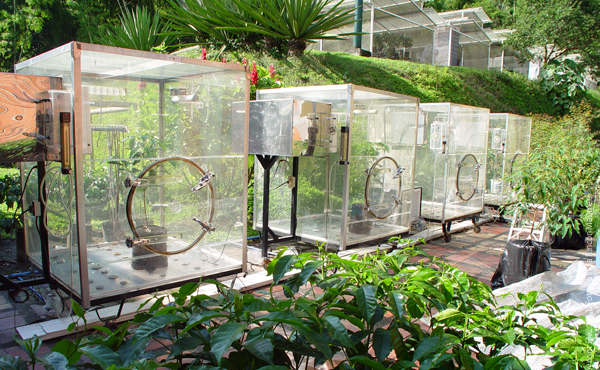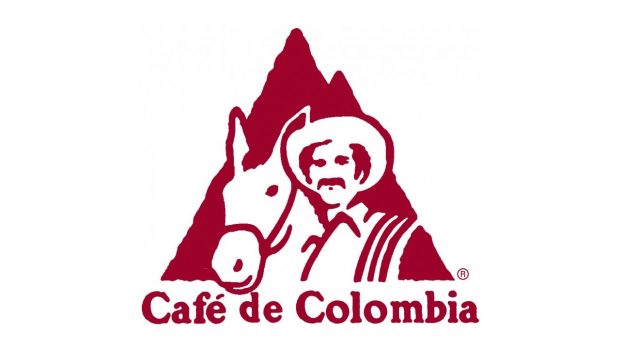The Colombian Coffee Growers Federation (FNC) unveiled two major initiatives at the recent 83rd National Coffee Growers Conference in Bogotá, including the release of a new pest- and leaf-rust-resistant variety called Cenicafé 1, and a new sustainability certification platform associated with the Café de Colombia mark.
Cenicafé 1
Representatives of the FNC’s national coffee research Center Cenicafé announced the release of the Cenicafé 1 hybrid variety, which the group says is the result of 20 years of research and testing.
FNC Technical Manager Hernando Duque Orrego presented the new variety, which the group says is well suited for broad geographical adaptation for different growing regions and conditions throughout Colombia.
“It enjoys excellent agronomic attributes and excellent quality, and has a greater proportion of supremo beans,” Duque Orrego said of the variety. “Notwithstanding, it’s essential to adopt optimal agronomic management practices in order for the crop to yield high profitability.”
Cenicafé 1 stems from eight advanced progenies selected from an initial pool of 116 crossing Caturra and Timor Hybrid 1343. The FNC says the variety can stand up to high planting densities — between 7,000 and 10,000 plants per hectare — while offering natural resistance to pests and diseases including leaf rust and coffee berry disease (CBD). They also say it offers high productivity and top quality.
Here are some of the Cenicafé 1’s vital statistics, as presented by the FNC:
- Height: average height at 24 moths of 140.1 cm, in a range between 138.7 and 141.5 cm. Similar to the height of the Caturra variety.
- Production: average production of 17.6 kg of cherry coffee (cc) per tree per cycle of four harvests. Equal to the production obtained with the Castillo General variety.
- Physical quality (bean): 84.3% average of supremo coffee, in a range between 83.7% and 85.0%. Superior to the average of the Caturra variety (54.1%) and the Castillo variety (79.3%).
- Quality (cup): cup quality is described as ´very good´. Cenicafé 1 is classified as a specialty coffee.
- Taster notes: according to the taster panel of the Departmental Coffee Growers Committee of Caldas, Cenicafé 1 has notes of cocoa, honey and hazelnut.
Café de Colombia Sustainability Standard
The FNC has also announced that efforts are underway to define a sustainability standard to be associated with the group’s Café de Colombia mark. The mark has traditionally been intended to reflect and promote quality of Colombian coffees, although the FNC says an associated sustainability standard could also work toward generating more revenue for the country’s coffee growers.
“Café de Colombia 100% Sustainable will be a code of conduct that will guarantee stakeholders (customers, industry, buyers, governments, academia) that the processes and products verified under this instrument meet sustainability standards,” the FNC said in an announcement following the Congress in Bogotá.
FNC Commercial Manager Felipe Robayo said the standard will work toward the goal of making Colombia’s coffee industry 100 percent sustainable by 2027. Although the baseline sustainability standards under this framework have not been outlined in detail publicly, the FNC says approximately 212,000 farms (or 42 percent) of Colombia’s coffee farms are already meeting some sustainability standards.
“The definition of a Café de Colombia sustainability standard must be credible, novel, reliable and voluntary,” the FNC said. “It will adopt the democratic and participative nature of Colombia’s coffee institutions, which is highly valued both in Colombia and abroad.”
A primary goal of the Café de Colombia 100% Sustainable standard initiative appears to be to refine the institutional framework that is already assisting many growers through FNC extension services to meet sustainability standards.
“The implementation of Café de Colombia 100% Sustainable will include the integral assessment of socioeconomic, institutional and environmental spheres, verifying that the best practices are executed throughout the commercialization chain,” the FNC said.
Said Robayo, “It’s not just a market issue, it also relates to the responsibility and empowerment of Colombian coffee growers.”
Nick Brown
Nick Brown is the editor of Daily Coffee News by Roast Magazine.








Comment